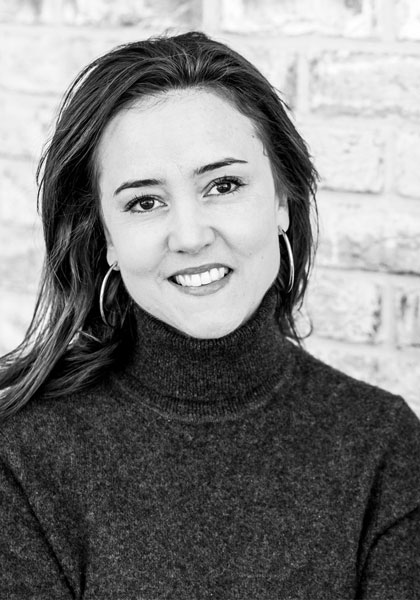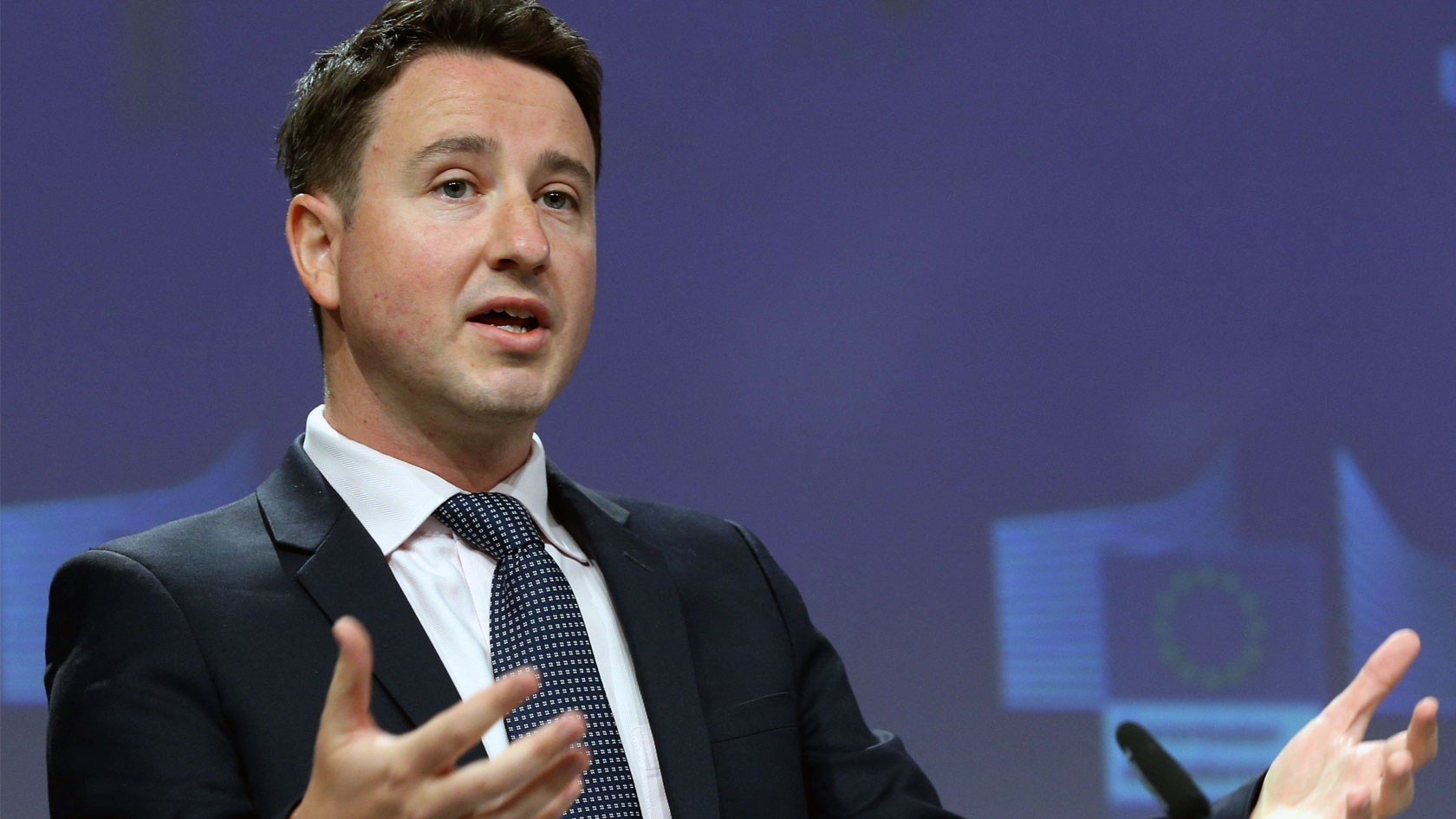Navigation auf uzh.ch
Navigation auf uzh.ch
Madeline Woker’s international personal and professional background and her interdisciplinary openness fit perfectly with the Collegium Helveticum, the joint Institute for Advanced Studies by UZH, ETH Zurich and the Zurich University of the Arts.
Woker is interested in the interconnections between economic activity, history and politics. She spent the last two years as an assistant professor at Cambridge (UK) researching the history of tax havens and their colonial origins and conducting research into racial capitalism and into how tax justice evolved worldwide.
Woker is internationally on the move. Although she is a Swiss citizen, she has lived most of her life abroad thus far. At Columbia University in New York, she wrote her dissertation on France’s unjust taxation policies in its colonies and the popular resistance against them. Her search for sources took her to fifteen archives in Asia, Europe, Africa and America, and she started to learn Arabic and Vietnamese. She did her postdoc at Brown University (USA) – “primarily online, unfortunately, due to the COVID-19 pandemic,” she regrets.
And how did she end up in Zurich? “My recently retired parents live near Interlaken, and I wanted to move closer to them,” Woker recounts. At Cambridge, she searched for a possibility to do postdoc research in Switzerland on her focus subjects – the history of capitalism and social history – and to finish writing her book on the politics of taxation in the French colonial empire.
She came across the Collegium Helveticum rather by happenstance last year on Twitter (now X) through a tweet about an event that interested her and which had been organized by an earlier acquaintance. Moreover, as lucky chance would have it, that same year she was invited by UZH economic historian Tobias Straumann to attend a conference about the renowned economist Edwin Seligman, a pioneer in the field of taxation and public finance, about whom Woker had also written. “The conference on Seligman was inspiring,” Woker recalls. “I met so many interesting people whom I had only known through their publications. I realized right then that Zurich would be a great place to work.”
Woker asked Straumann for a letter of recommendation and then applied for a fellowship at the Collegium Helveticum – and landed one. And that’s how her transfer from Cambridge to Zurich in September 2023 came to pass. Woker feels that she is in the right place at the Collegium Helveticum, as does the institute’s director, Sebastian Bonhoeffer: “Madeline Woker has had an outstanding academic career thus far, and she submitted an original project proposal that has great societal relevance and is perfectly suited for the kind of transdisciplinary discourse that we nurture here at the Collegium.”

Zurich is a great place to work.
Woker highly appreciates the virtues of the fellowship: “Here I have the intellectual freedom and time I need to finish writing my book.” Her publication shines a light on France’s unjust taxation policies in its colonies: the taxes served primarily to finance France’s expansion policy and were hardly ever invested in the communities in the colonized countries.
Thanks to her associate fellow Tobias Straumann, a UZH professor likewise engaged in interdisciplinary research and teaching in the fields of economics and history, Woker soon got to know researchers who are working on related subjects, such as the professors Matthieu Leimgruber (social and economic history), Debjani Bhattacharyya (history of the Anthropocene), Martin Dusinberre (global history), and Monika Dommann (Department of History). “The Collegium Helveticum provides me with exactly what researchers need the most after their postdoc: time for their own research priorities and for building a relationship network,” Woker says enthusiastically.
Woker prefers most to work onsite in her office in the repurposed former astronomical observatory in Zurich, where the Collegium Helveticum is headquartered and where its fellows receive support in administrative matters and are assisted with a good infrastructure – an environment that Woker appreciates enormously in the wake of the COVID-19 pandemic.
The other fellows at the Collegium Helveticum are conducting research on entirely different subjects. “I find that extremely enriching,” Woker says. Sociologists, artists, political scientists, economists, physicians and biologists from a wide array of countries cross paths on the premises on Schmelzbergstrasse, “and interesting discussions can be had with all of them – for example on what constitutes just taxation,” Woker relates. “Taxes, like the weather, are a universal topic. Everyone, regardless of whether from the Global South or North, has firsthand experience in dealing with the tax policies of his or her country of origin.”
Every Thursday, the fellows meet for lunch together, then one of them gives a presentation of his or her work in the afternoon. The presentations are voluntary, and everyone is welcome to attend and ask questions. “Those Thursdays delight me,” Woker says.
Jeweils am Donnerstag treffen sich die Fellows zum Lunch, und am Nachmittag stellt eine:r von ihnen seine Arbeit vor. Die Präsentationen sind freiwillig, alle sind willkommen und können Fragen stellen. «Ich bin begeistert von diesen Donnerstagen», sagt Woker.
The stated goal of the Collegium Helveticum is to bring promising junior researchers together from around the world – if they afterwards want to stay in Zurich and find employment, that objective is more than fulfilled. How does Woker rate the possibility of staying in Zurich? “The academic environment in Zurich – with UZH and ETH – is very rich and rewarding,” Woker replies, “but I would like to establish contacts throughout all of Switzerland.” She is currently working, for example, together with the Geneva-based Dubois Foundation, the Swiss National Science Foundation and a colleague at the Geneva Graduate Institute on a conference to be held at the end of May of this year.
Also, next year Woker will take up a permanent position as an assistant professor at the University of Sheffield. She says she discovered that, unfortunately, the Swiss system very rarely provides an opportunity to land a permanent job in the early stage of an academic career. “You usually have to wait quite a long time until you maybe get appointed to a professorship someday, and in the meantime you go from one fixed-term position to the next – well paid, but without any job security.”
The Collegium Helveticum’s international orientation, on the other hand, pays off quickly for everyone involved. It enabled Woker, for instance, to engage the renowned economist Gabriel Zucman, a co-author of the highly acclaimed 2024 Global Tax Evasion Report, for a panel discussion that she organized and which was held last Friday. “Zucman’s research hits a nerve of our times,” Woker says. “He researches tax havens worldwide and has been able to reveal how much tax revenue gets withheld from which countries through evasion and by whom and how tax dodging impacts those countries affected.”

Zucman, together with over a hundred researchers worldwide, has investigated how the tax situation in a variety of countries has evolved over the last ten years as numerous governments have moved to enact different measures to combat tax avoidance. Zucman’s research now makes it possible for the first time to conduct a stocktaking of where tax evasion effectively has decreased and where it hasn’t.
Woker is impressed with how Zucman shares his standout research with the public. “He brought the EU Tax Observatory into being and, through it, he makes his research findings available to governments as a basis for making decisions,” Woker says. The EU Tax Observatory is an independent research center hosted at the Paris School of Economics; its catalogue of publications includes the Atlas of Global Tax Evasion, an online platform freely accessible to the public. “That’s what I greatly appreciate about Zucman,” Woker says. “He puts his outstanding scholarly expertise to use so that taxation policies around the world can be designed more equitably,” because a taxation policy that is as fair as possible is “the most important non-violent way to prevent inequality from becoming rampant in a society,” Woker says with conviction.